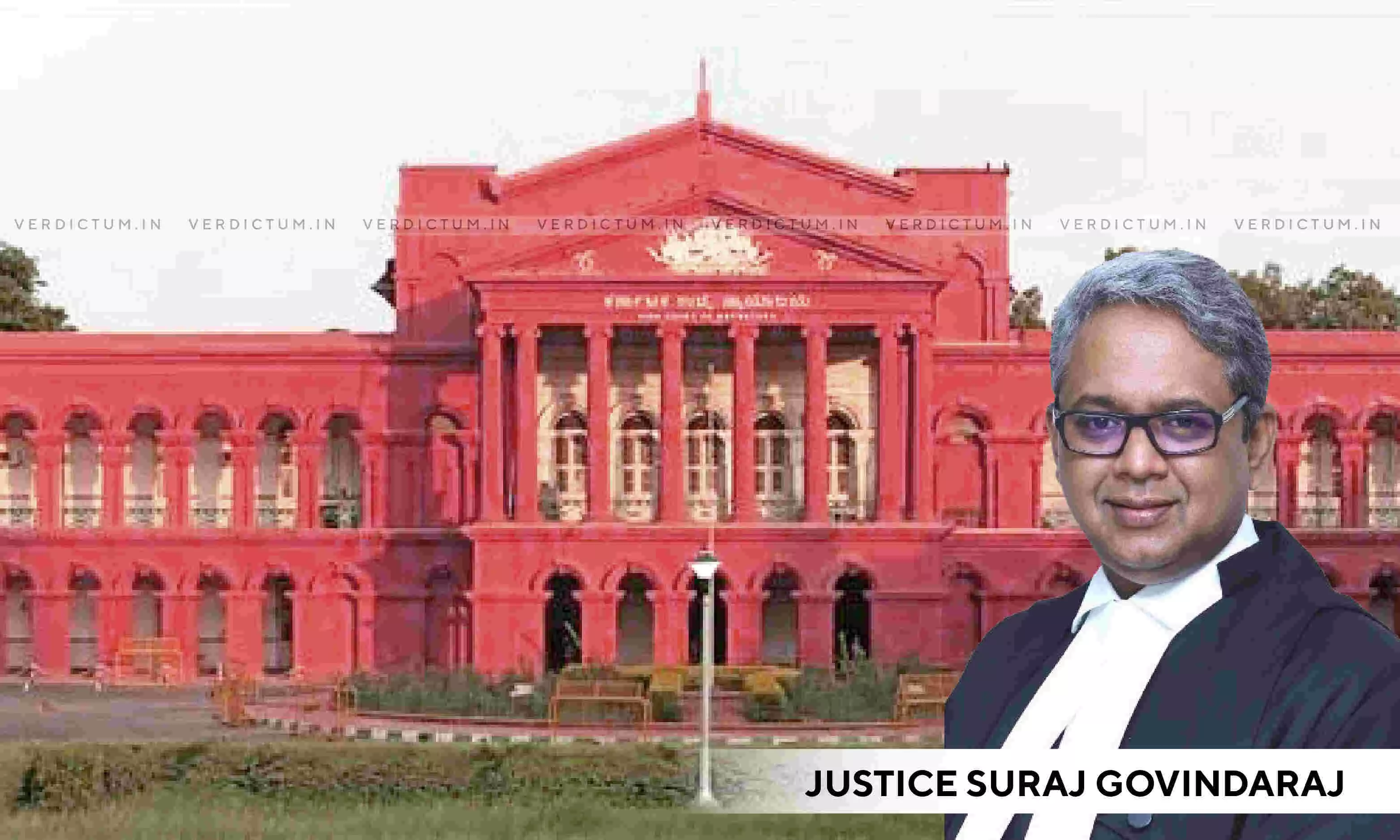
Dual Standards Used By State Are Unjustified: Karnataka High Court Strikes Down Dual Classification For Balajiga/Banajiga Community
 |
|The Court said that the Balajiga/Banajiga community, classified as Group-B for educational purposes, must also be classified under Group-B for employment purposes.
The Karnataka High Court has held that a particular class or category of persons cannot be classified as socially and educationally backward for the purpose of reservation under Article 15(4), while being considered more forward and adequately represented for employment purposes under Article 16(4) of the Constitution.
A Single Bench of Justice Suraj Govindraj observed, “…a particular class or category of persons cannot be said to be socially and educationally backward to classify them in Group-B for reservation under Article 15 (4) and consider the very same class to be more forward and adequately represented for the purpose of employment by classifying the same class in Group-D for purposes of Article 16(4).”
The Court added, “This dichotomy and the dual standards which have been used is not justified by the State in any manner.”
Senior Advocate M.S. Bhagwath represented the Petitioner, while Additional Government Advocate Mahantesh Shettar appeared for the Respondents.
Brief Facts
The Petitioner belongs to the Balajiga/Banajiga community, having completed her education showing her caste as Balajiga/Banajiga, which comes under the Group-B Category as classified in terms of Article 15(4). The Petitioner was selected and appointed as a Primary School Teacher, having declared in Form No.3. A certificate was issued to her after due enquiry that she belongs to Group-B category. A notice was issued alleging that for the purpose of employment, she would belong to Group-D. Respondent No.2 cancelled the caste certificate by an order, and the Petitioner’s appeal was dismissed by Respondent No.3. The Petitioner was directed by High Court to approach the Karnataka Administrative Tribunal, which held it not to be maintainable. Aggrieved, she filed an amendment application bringing on record the government order showing dual classification of her community, Group-B for education, Group-D for employment.
The Petitioner contended she was always under the impression that there was only one classification for the Balajiga/Banajiga community, and she continued to represent herself as Group-B even for employment purposes. She further submitted that it was only subsequently that she came to know there existed a dual classification. She contended that there cannot be such a dual classification, and stated that if a community was in Group-B for education, it should also be in Group-B for employment.
Reasoning of the Court
The Court observed that since the classification in both cases is based on socio-economic backwardness, the same criteria should consistently apply for reservations under Article 15(4) as well as Article 16(4).
The Court said, “A perusal of Article 14 above would indicate that the State shall not deny to any person equality before the law or the equal protection of laws within the territory of India. The term equality before the law in my considered opinion, would also include the reservation to be equal in all respects i.e., both under Article 15(4) and Article 16(4).”
The Bench observed that equal protection of laws would include reservation, as affirmative action ensures a specific number of seats in education or posts in employment, therefore, since Article 14 protection is subject to Articles 15(4) and 16(4), there cannot be any discrimination in reservation between Article 15(4) and Article 16(4).
The Court referred to the decision of the Apex Court in State of Punjab v. Davinder Singh (2024), wherein it was held purpose of Article 15(4) and Article 16(4) was to ensure substantive equality of opportunity to the socially backward communities and further that the beneficiary class in Article 16(4) subsumes the socially and educationally backward classes under Article 15(4).
The Court held, “In that view of the matter, I answer point No.1 by holding that a particular community cannot be classified for educational purposes under a different group than the classification made for the very same community for employment purposes under a different group. The community would have to be classified for both educational purposes and employment purposes under the same group.”
“The State having classified the “Balajiga/Banajiga community” as Group- B for education purposes, it is required for the State to classify the very same community as Group-B for employment purposes and not under Group-D”, it added.
Consequently, allowed the petition, and declared that the classification of the Balajiga/Banajiga community for employment purposes, being different from that for education, is discriminatory, illegal, void ab initio, and violative of Article 14 of the Constitution of India.
The Court further directed the State to reclassify the Balajiga/Banajiga community under Article 16(4) in Group-B instead of Group-D, and held that the Petitioner, being from the Balajiga/Banajiga community, was entitled to employment reservation under Group-B, and that her employment as a primary school teacher would continue.
Cause Title: V. Sumitra v. State of Karnataka & Ors. (Neutral Citation : NC: 2025:KHC:15564)
Appearance:
Petitioner: Senior Advocate M.S. Bhagwath; Advocate L. Srinivasa Babu
Respondents: Additional Government Advocate Mahantesh Shettar